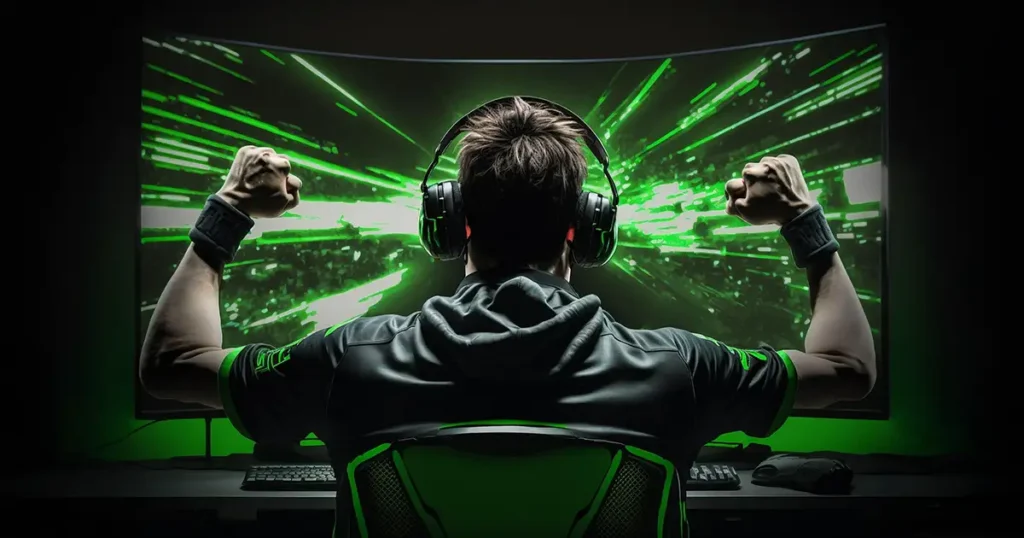Embarking on a career as a professional gamer is the ultimate dream for many gaming enthusiasts. It’s a field that combines passion with the opportunity to earn a living doing what you love. However, the path to professional gaming requires more than just playing video games for hours on end. It demands strategic planning, continuous skill development, mental resilience, and a deep understanding of the gaming industry. This comprehensive guide breaks down every step you need to take to turn your gaming aspirations into a thriving career.
1. Understanding the Esports Ecosystem
Professional gaming, commonly referred to as esports, has grown into a multi-billion-dollar industry with millions of fans worldwide. The ecosystem includes a range of stakeholders, including game developers, tournament organizers, sponsors, content creators, and, of course, professional players.
Games like League of Legends, Dota 2, and Fortnite are some of the most popular titles in esports, each offering its own competitive circuits, championship tournaments, and vibrant communities. For instance, The International, the annual Dota 2 tournament, boasts prize pools in the tens of millions of dollars. Understanding these structures will help you identify where your potential lies within the industry and how to navigate opportunities.
Aspiring players must also keep an eye on emerging games with competitive potential. New games frequently rise in popularity, and early adoption can give players an advantage in mastering the game before it becomes oversaturated with seasoned competitors.
2. Choosing Your Game and Platform
Selecting a game to specialize in is one of the most critical decisions you’ll make. With countless games out there, you’ll need to choose one that aligns with your interests, skills, and the potential for growth in its competitive scene. Popular esports titles like Counter-Strike: Global Offensive (CS:GO), Valorant, and Call of Duty offer established professional circuits. However, niche games can sometimes present unique opportunities to stand out.
When choosing a game, consider the following:
- Player Base: Games with a large and active community tend to have a healthier esports ecosystem.
- Skill Set: Focus on a game that complements your natural abilities—whether it’s quick reflexes, tactical thinking, or team coordination.
- Longevity: Pick a game with strong developer support and a roadmap for future updates to ensure long-term viability.
Additionally, decide on your preferred platform—PC, console, or mobile. Each has its own competitive scene, and your choice will influence the equipment and tools you’ll need to invest in.
3. Mastering Game Mechanics
To become a professional gamer, mastery of your chosen game is non-negotiable. This goes beyond merely understanding the rules—it’s about developing an in-depth knowledge of mechanics, strategies, and meta (most effective tactics available). Whether it’s understanding how to execute perfect combos in Street Fighter or mastering advanced building techniques in Fortnite, your goal is to outthink and outplay your opponents consistently.
Spend time analyzing gameplay from top professionals to learn their strategies. Pay attention to nuances like positioning, timing, and decision-making under pressure. Many successful players also spend hours practicing specific skills, such as aim training in first-person shooters or optimizing economy management in real-time strategy games.
Tools like aim trainers, replay analysis software, and coaching platforms can accelerate your progress. Don’t just play for fun—play with a purpose to identify your weaknesses and turn them into strengths.
4. Investing in Quality Equipment
The right equipment can make a significant difference in your gaming performance. Whether you’re gaming on a PC, console, or mobile device, ensure your setup is optimized for competitive play. A high-performance gaming PC with a fast processor, a powerful graphics card, and ample RAM is essential for many esports titles. For console players, investing in responsive controllers with programmable buttons can provide a competitive edge.
Peripherals like monitors with high refresh rates (120Hz or higher), mechanical keyboards, and gaming mice with adjustable DPI settings are designed to improve accuracy and responsiveness. Similarly, a good-quality headset will help you communicate effectively with teammates and stay aware of in-game audio cues.
Don’t overlook the importance of comfort—ergonomic chairs and desks can help prevent strain during long gaming sessions. A stable, high-speed internet connection is equally critical to minimize lag and latency issues, especially during online matches.
5. Joining the Gaming Community
Becoming part of the gaming community is a vital step in your journey. The community is where you’ll find like-minded individuals who share your passion and can offer valuable insights and support. Start by joining online forums, social media groups, and Discord servers related to your chosen game. Engaging in these spaces will expose you to tips, strategies, and opportunities to network with other players.
Participating in local gaming events or meetups is another excellent way to build connections. These events often serve as a gateway to forming teams, finding mentors, or even meeting potential sponsors. Being active in the community can also help you stay updated on the latest developments in your game, such as balance changes, new strategies, or upcoming tournaments.
6. Participating in Tournaments
Competing in tournaments is where you put your skills to the test. Start small by participating in local or online tournaments, which are often more accessible to beginners. These competitions will help you gain experience, build confidence, and understand what it takes to perform under pressure.
As you improve, aim for higher-level tournaments with larger prize pools and stronger competition. Platforms like Faceit, Battlefy, and Challonge often host a wide range of esports events. Many professional players were discovered through their performances in online tournaments, making it an excellent way to get noticed by teams or sponsors.
Consistency is key—don’t get discouraged by initial losses. Every tournament is a learning experience that will help you grow as a player.
7. Building an Online Presence
In the modern gaming world, your online presence is just as important as your in-game performance. Platforms like Twitch, YouTube, and TikTok offer opportunities to showcase your skills, connect with fans, and build a personal brand. Regularly streaming your gameplay, creating tutorials, or sharing insights can help you establish a following and attract sponsorships.
Social media platforms like Twitter and Instagram are also essential for networking and promoting yourself. Engage with your audience, interact with other players, and stay active in conversations about your game. A strong online presence not only increases your visibility but also opens doors to collaborations and monetization opportunities.
8. Maintaining Physical and Mental Health
Professional gaming may seem like a sedentary activity, but it places significant demands on your physical and mental health. Sitting for long hours, staring at screens, and coping with the stress of competition can take a toll on your well-being.
Incorporate regular physical exercise into your routine to improve posture, increase stamina, and boost overall health. Activities like yoga, stretching, and strength training are particularly beneficial for gamers. A balanced diet rich in nutrients will also help keep your energy levels high and improve cognitive function.
Mental health is equally important. Practices like meditation, mindfulness, and stress management can help you stay focused and resilient. Don’t hesitate to seek support from mental health professionals if you’re struggling with anxiety or burnout.
9. Seeking Mentorship and Coaching
Even the best players can benefit from guidance. Working with a coach or mentor can provide valuable insights, helping you identify weaknesses and develop more effective strategies. Many professional esports teams employ coaches to refine their players’ skills and improve team dynamics.
If you’re unable to find a personal mentor, consider enrolling in online coaching programs. Websites like GamerSensei and Metafy connect players with experienced professionals who can offer tailored advice and training.
10. Staying Informed and Adapting
The gaming industry is constantly evolving, with frequent updates, patches, and new releases shaping the competitive landscape. Staying informed about these changes is essential to remain competitive. Follow official game channels, patch notes, and esports news outlets to keep up with the latest developments.
Adaptability is one of the most important traits of a professional gamer. Whether it’s adjusting to new mechanics, countering emerging strategies, or switching games entirely, staying flexible will ensure your longevity in the industry.
Conclusion
Pursuing a career as a professional gamer is both challenging and rewarding. It requires a combination of skill, dedication, and strategic planning. By mastering your craft, engaging with the community, and building a personal brand, you can transform your passion for gaming into a thriving career. Remember, the path to success is rarely linear—stay persistent, keep learning, and embrace every opportunity to grow.






